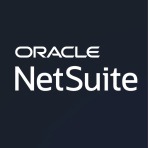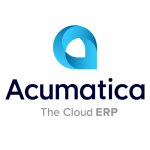We implemented the SaaS model applications. The SaaS model means that Oracle holds the hardware/software and provides accessibility through its unbreakable network.
There are two ways of using these Oracle Apps:
- On-Premise Model: The hardware/software is the responsibility of the client
- SaaS model: Hardware/software is Oracle's responsibility. It is like renting an apartment from a skyscraper, where maintenance is the responsibility of the building owners for a nominal fee.
The SaaS model certainly saves you costs and improves profitability. It streamlines the business and the systems.
A solution is provided for a problem. The Oracle Fusion Applications meet 99% of the business problems as the underlying technology built on studying various industrial processes.
If there is any extraordinary issue/problem, it can be discussed and they offer an out-of-the-box solution.
Development is a continuous process. There is always opportunity to work to refine a process and find a solution for problem. In software industry it is always opportunity. In Industry, there would be many manual processes and wanted to eliminate the pains of Users. Hence automation taken space to refine the system process. All the time the standard packages like Oracle Applications may not meet those manual processes. There is opportunity for development to automate those processes.
Oracle EBS Applications are developed with all those manual processes in view and maximized the automation, wherever it was possible. In Fusion Applications it is further developed to meet many business processes across the Industry. In Fusion Applications, the PaaS (Service Oriented Architecture, BPML, Java EE) platform conceptually made it reality to meet any non-standard business data to get integrated from source to move seamlessly to On-Premise, and SaaS model ERP, CRM SCM Applications, thereby reducing the efforts/costs to build customizations and extensions. Over all the costs of maintaining the custom processes is dramatically reduces. Now the Corporate Slogan is : Simplify Business Process and Simplify Systems process/Maximize profits.
Otherwise, the Fusion Applications solve any problem.
We have used this solution for two years.
Now the product is much more stable.
We had another solution and we changed to reduce the costs and improve the profitability.
I was not involved in the installation. It is Oracle's responsibility and therefore no headache for the clients.
I strongly recommend adopting the SaaS/PaaS/IaaS model and enjoying the profits.









